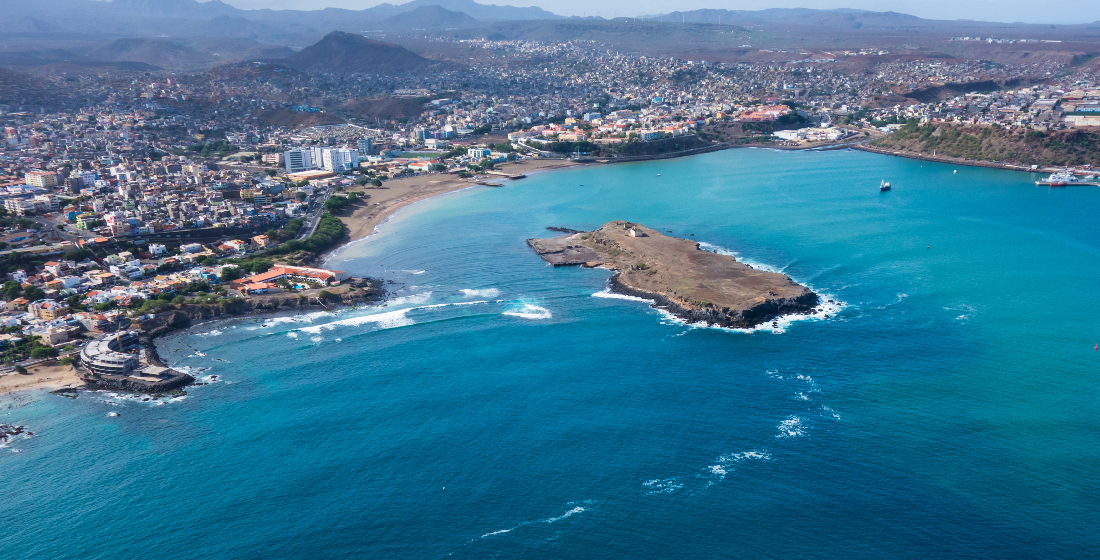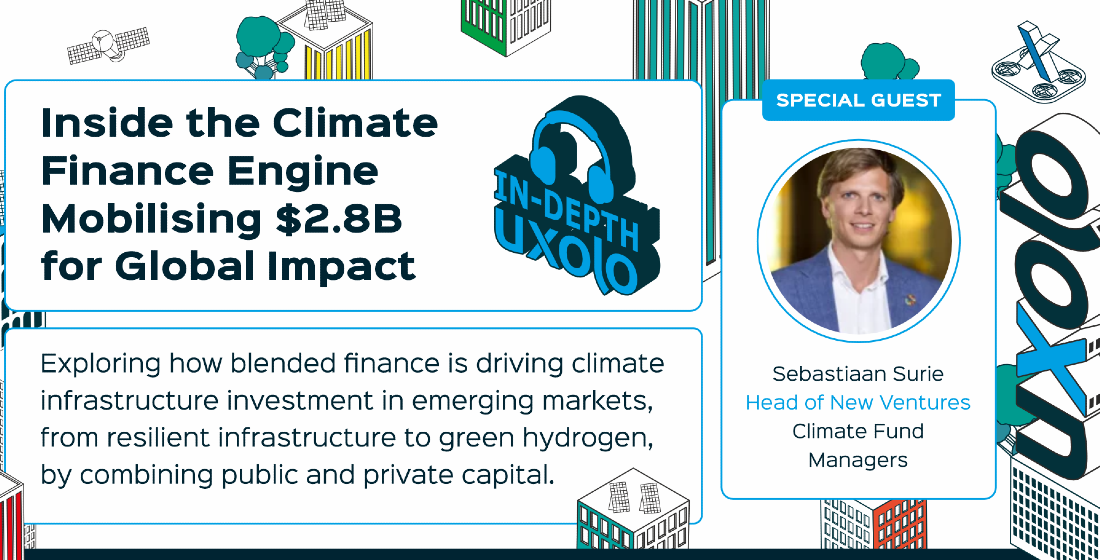Shoptalk: Catalysing eco innovation at the source
The ability to transform deserts into arable land, to pioneer mobile layaway systems for smallholder farmers, or to develop one-tap digital insurance platforms once seemed like futuristic technology. But Catalyst Fund's 10 latest startup investments are bringing that future forward says managing director Maelis Carraro.

Maelis Carraro is managing director of Catalyst Fund – a pre-seed VC fund and accelerator backing high-impact tech startups that seek to improve the resilience of underserved, climate-vulnerable communities. Initially backed by the Bill & Melinda Gates Foundation and JP Morgan Chase, with fiscal sponsorship from Rockefeller Philanthropy Advisors, the accelerator has scaled with support from the FCDO, PayPal, and Mastercard Foundation. The fund has a target of $30 million and aims to fill gaps in innovation ecosystems across emerging markets with a model offering catalytic equity capital, bespoke venture-building support, and access to a global network of investors and corporate innovators.

Maelis Carraro, MD of Catalyst Fund
Uxolo: What gap is the fund seeking to fill in the emerging markets where it is active? What challenges do startups face and why is it essential to catalyse ideas at that stage?
Maelis Carraro (MC): Catalyst Fund was started seven years ago in recognition that entrepreneurs across emerging markets face three major barriers: firstly, in accessing capital due to investors’ perception that many emerging markets are still too risky Secondly, lack of access to the skills and talent needed to scale a startup quickly, in the early days of development. Startups often cannot afford the best talent at that early stage – like designers, marketers, product managers, etc. The third barrier is networks and relationships, particularly if you are a company with under-represented founders or are from an ecosystem that does not necessarily have those connections. Founders are spending all their time trying to fundraise, often unsuccessfully, rather than building the products and solutions that are actually going to benefit their communities.
Uxolo: The fund has backed 61 companies spread across 15 countries, which have gone on to secure $656 million in follow-on funding. What is your funding process for these companies?
MC: In the past we have offered grants and debt, and experimented with both instruments. In our latest fund we are offering $200,000 in equity funding, of which $100,000 is direct cash and $100,000 is venture building support to the companies.
We have built a network of over 150 global investors that we know are interested in emerging markets, and in fintech and climate tech in Africa particularly. After the startup receives funding we actively work with them to connect with the investors in our circle and beyond that we think could be strategic partners for the startups. We make one-to-one introductions, host demo days and other events across various markets to create opportunities for connections.
We also work really intensely with the startups through our venture building process. We have a six months acceleration process that gives the company access to our in-house team of experts including product managers, data scientists, researchers, UX, UI and product designers, marketers, specialist fundraisers, and business operations. They design a plan with each company to determine the goals to achieve in six months.
We embed ourselves into the startups’ teams and do whatever it takes to help them hit their next milestones. Most team members have a background as startup operators, have lived in Africa, or have founded/invested in startups in emerging markets. Our offices are in Nairobi too, giving a foothold to companies expanding their reach across the continent.
Uxolo: What parts of your accelerator process stand out to users?
MC: Entrepreneurs always value the ability to gain deep user insights via our user researcher sprints. At the start of building a business you have to deeply understand how your product is going to solve pains or create gains for your customers. They also value our support with product design and product management more broadly, such as conducting experiments to improve the product offering. We also explore the tech infrastructure of the product and improve the backend data collection processes, enhancing the ability of companies’ to use data for business decision-making. Other typical areas of support that improve retention and business outcomes are marketing, such as revamping their websites and marketing materials, and thinking through their communication strategies with clients. Not to mention, the support with fundraising and partnership building with key distribution partners. It is a luxury to have that support – you would otherwise pay very expensive consulting, design or marketing firms which is prohibitive.
Uxolo: The fund recently invested in 10 new startups – can you outline what some of these companies are doing and the impact they’re having and seeking?
MC: Our goal with backing these most recent startup investments is improving the resilience of climate-vulnerable communities. We were looking for startups across three areas: climate smart financial services, climate-smart livelihoods, and essential services. We invested in ASSURAF, based in Senegal, which is a digital insurance platform that offers users insurance products for life, health, and natural disasters among others. Their flexible insurance coverage solutions make it easy for customers to get insured in a few taps no matter where they are. With the recent floods in Nigeria and drought in Kenya, we are seeing a lot of livestock and livelihoods depleted. Enhancing access to insurance solutions allows populations to better prepare and respond to these natural events.
In the climate-smart livelihoods category, one of the companies we invested in is called Agro Supply Ltd, based in Uganda. They have pioneered a mobile layaway system that uses a USSD code, scratch cards and mobile money to enable farmers to save for agricultural inputs. They have the option to save money gradually and cash out to buy drought resistant beans from maize, sorghum, sunflower, and soybeans, ensure sufficient cash flow during the planting season, and receive agricultural advice from Agro Supply’s staff. Agritech platforms that blend financial services, like insurance, savings, or credit, with access to climate resistant outputs, and off-takers build strong value chain models to strengthen farmers’ livelihoods in the face of climate shocks.
We also invested in a company called Sand to Green in Morocco – they are using agro-forestry methods and solar-powered desalination machines to transform desert into arable land. This kind of innovation is groundbreaking. With over 65% of its territory covered with desert and more than 90% located in an arid to semi-arid climate, Morocco is highly dependent on a few natural resources and thus highly vulnerable to the impacts of climate change. Water scarcity, food insecurity, desertification, and shoreline erosion are all already growing problems in Morocco. Desertification can have other consequences as well, such as populations being forcibly displaced. Restoring these lands gives inhabitants a chance to adapt and become more resilient today and in the future.





